Text
Final Blog

Welcome back to your favourite spot on the block, the ‘Psyche Hotspot’!
Unfortunately, this will be my last blog as it relates to issues with forensic psychology.
Despite all the issues, forensic psychology is a field that is advancing rapidly, and bearing its value, its future in the Jamaican criminal justice system looks very bright.
It will continue to allow for the evaluation and analysis of criminals and their history. Forensic psychologists will use criminal behaviors and patterns to find evidence and eventually solve crimes. It will assess a criminal’s mental state. Some individuals are unfit/ incompetent to stand trial or plea while some criminals use insanity as a defense. Forensic psychology is able to determine the competency of these individuals and the validity of the insanity defense. This is done through a series of assessments and evaluations. Extensive use will ensure that appropriate diagnosis and treatment is applied to individuals. Forensic psychology will ensure better application of justice in the future as assessment and evaluation skills evolve.
It also has a future in not only evaluating criminals and members of the criminal justice system, but all members of society. Assessment of the mental state/ cognitive processes of members of society. This acts as a preventative measure so that persons who are mentally unstable can receive the proper treatment as soon as possible. This may positively affect the number of individuals that enter the criminal justice system.
Despite the value of forensic psychology. Jamaica has been lacking adequate forensic psychologists for the longest while. According to a Gleaner article published in 2017, there is a need for more forensic psychologists in Jamaica. However, with the increase in the number of students pursuing and successfully graduating from the psychology and forensic psychology programmes, I believe that the number of forensic psychologist in Jamaica will increase gradually. This will allow for the availability of forensic psychologists all across the island and within the criminal justice system.
The future of forensic psychology in Jamaica’s criminal justice system is limitless once it is utilized appropriately in collaboration with other branches of forensics. Consequently, its value and effectiveness will evolve futuristically combating serial and organized crimes.
Thank you guys so much for coming along on my blog journey and I hope the information shared was very beneficial. I can proudly say that this assignment has opened my eyes to a lot of things happening in my surroundings. Having this knowledge, I can use it to initiate the change that I want to see and so can you.
Goodbye for now. Remember to stay safe, sane, sanitized and sensitized.
Source:
Padowitz, K. (n.d.). Application of Forensic Psychology to the Criminal Justice System. Criminal Defense Attorney | Psychology of Law And Criminal Behavior. Retrieved April 7, 2022, from http://www.psychology-criminalbehavior-law.com/2018/07/application-of-forensic-psychology-to-the-criminal-justice-system/
Springer Publishing Company. (2021, January 13). The Growing Future of Forensic Psychology. Springer Publishing. Retrieved April 10, 2022, from https://connect.springerpub.com/content/book/978-0-8261-4075-3/part/part03/chapter/ch09
0 notes
Text
Blog #11 The value of forensic psychology
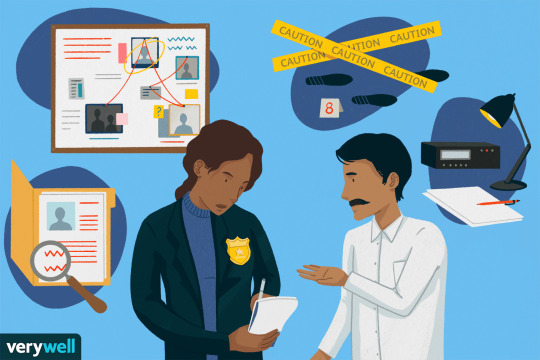
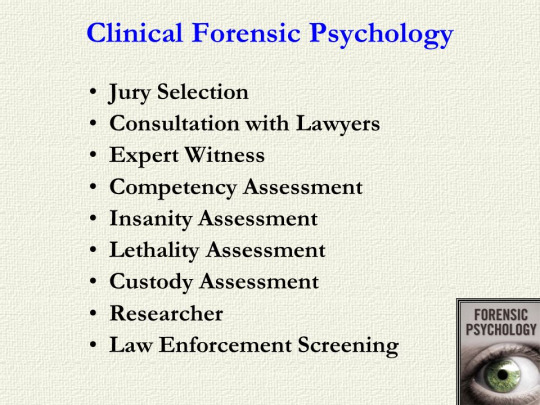
Welcome back to your favourite spot on the block, the ‘Psyche Hotspot’!
Forensic psychology is the use of psychological expertise and skills to both criminal and civil matters. Forensic psychology is a field that is advancing rapidly, however, the value and importance of it is not known to many. Consequently, it is not applied in legal matters as often and effectively. Thus, I strongly believe that forensic psychology lacks originality and is an attempt to reinvent itself.
Firstly, forensic psychology is valuable in the solving of crimes. Forensic psychologists are able to decipher criminal behaviors and patterns to find evidence that may be useful in investigations and potentially solve crimes. Forensic psychology can assess a criminal’s mental state because some individuals are unfit and lack the competence necessary to stand trial or plea while some criminals use insanity as a defense. Forensic psychology is able to determine the competency of these individuals and the validity of the insanity defense. This is done through a series of assessments, evaluations and analysis of criminals and their history.
Forensic psychology is not only valuable in its use for criminals, but it is also useful in the assessment of the mental state/ cognitive processes of potential workers and members in the criminal justice system. It is an essential part of the hiring process that these individuals’ mental state is assessed before being hired. This acts as a preventative measure so that persons who are mentally unstable aren’t employed in these fields. Forensic psychology is also very important in the voir dire process for jury selection to determine the impartiality/neutrality of jurors. Professionals in the forensic psychology field can also be expert witnesses in court. They can provide accurate and relevant information from an ‘expert’s’ viewpoint that can be beneficial in the judicial decision-making process; for example, providing additional evidence or advising suitable treatments and punishments for criminals based on prior evaluation.
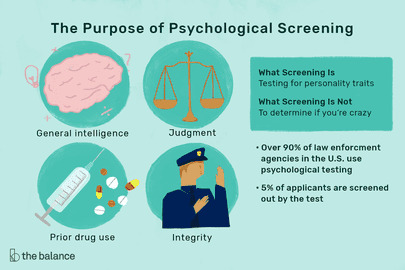
The way in which forensic psychology is portrayed and applied shows that it lacks originality, hence, its value may not be clearly recognized. For this, reinventing some areas and establishing relevance will allow for the effective recognition of value, use and application of forensic psychology to the required matters in society. This can be done mainly through proper sensitization of the public on the use, importance/ value and other relevant information about forensic psychology, hence, establishing originality.
Until next time, stay safe, sane, sanitized, and sensitized.
0 notes
Text
Blog #10 Balancing personal and professional life

Welcome back to your favourite spot on the block, the ‘Psyche Hot Spot’!
Most of us will say that what we do in our free time is our personal affairs and shouldn’t affect our professional affairs; however, when you are in a certain job or hold a certain position that is guided by a code of ethic or code of conduct, it surrounds both what you do at work and outside of work.
It is well known that often, impartiality is a result of conflict of interest. This interest may be financial, political, social, or any other. If such a case occurs, it is best for the forensic psychologist to withdraw, and let someone else take over. Personal interests are not necessarily mistakes. However, they could be a mistake if a professional decides to twist facts to protect own interests. It occurs in all professions, and forensic psychology is by no means an exception. But the truth is, as a professional, the moment you gotten into a sexual relationship with a client, or a student, your objectivity flies right out through the window. That is why it is strongly advised that you keep away from it like HIV/AIDS. Forensic psychologist must ensure there is no past, current, or future personal relationship with the with any individual relevant to the current situation at hand.
While it’s unavoidable to have such friendship or relationships, forensic psychologists are duty bond to disclose if they have conflicts of interest so that someone else can be assigned to the case.
I must say, it is very difficult to maintain an ethical lifestyle while off duty because many of us struggle with this. At the end of the day, we are only humans and the things that we may consider ‘right’ or ‘ethical’ in our personal lives are seen as ‘wrong’ or ‘unethical’ in the professional space. Hence, we should strike a balance by maintaining our organization’s code of ethics both while carrying out our duties inside or outside of work.
Until next time, stay safe, sane, sanitized, and sensitized.
Source:
Ltd, A. A. (2021, December 31). Ethical issues in forensic psychology. UK Essays. Retrieved April 7, 2022, from https://www.ukessays.com/essays/psychology/ethical-issues-forensic-psychology-2260.php
0 notes
Text
Blog #9 Use of psychological measurement to detect heightened emotional states in suspects
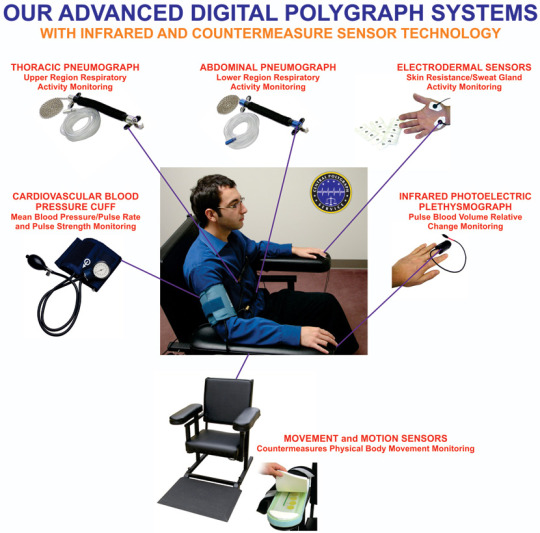
Welcome back to your favourite spot on the block, the ‘Psyche Hotspot’!
The psychological measurements that we are looking at are: heart rate, blood pressure, skin resistance and vocal stress. For this, a polygraph machine is utilized.
Polygraphy works by recording blood pressure, breathing (rate and depth of each breath), and the electrical conductance of the skin (which increases in the presence of sweat) as a person responds to a series of questions. Changes in these bodily functions (which are largely under the control of the autonomic nervous system) are interpreted as reflecting the increased anxiety associated with lying. Law enforcement also continues to use a device called a voice stress analyzer (VSA) as a way of determining if people under interrogation are telling the truth. This test relies on a machine that detects the occurrence of tiny tremors in the voice that are not audible to the listener, and can measure changes in the prevalence of these subaudible tremors.
Under stress, these subaudible tremors decrease. The logic (and fallacy) of both these techniques is similar—they rely on a chain with several weak links. These tests are useful only to the extent that telling a lie necessarily causes stress, and only to the extent that this stress necessarily causes physiological changes that can be detected by the machines. Some people lie but are not detected (a false negative), while some people are “detected” as liars even when they are telling the truth (a false positive).
We have to realize that a lot of individuals suffer from illnesses like hypo/ hypertension and irregular heartbeats. The effects of these illnesses may directly influence the outcome of a polygraph test. For this, a suspect’s medical history along with other factors should be taken into account when administering a polygraph.
If you were a good liar, do you think a polygraph test could catch you in your lie?
Until next time, stay safe, sane, sanitized, and sensitized.
Sources:
Forensic psychology. Forensic Psychology - an overview | ScienceDirect Topics. (n.d.). Retrieved April 7, 2022, from https://www.sciencedirect.com/topics/neuroscience/forensic-psychology
Schustack, M. W., & Friedman, H. S. (2005, May 28). Psychological Testing, overview. Encyclopedia of Social Measurement. Retrieved April 7, 2022, from https://www.sciencedirect.com/science/article/pii/B0123693985005120
0 notes
Text
Blog #8 Temporary insanity
youtube
Welcome back to your favourite spot on the block, the ‘Psyche Hotspot’!
The notion of temporary insanity argues that a defendant was insane during the commission of a crime, but they later regained their sanity after the criminal act was carried out. This legal defense is commonly used to defend individuals that have committed crimes of passion.
While you might hear the phrase “temporary insanity” used quite frequently in crime drama’s the reality of its use as a defense is quite different. An experienced defense attorney isn’t going to attempt to establish temporary insanity in cases where the defining elements fail to exist. From a legal standpoint, this means that pleas of temporary insanity are relatively rare and even when they are employed, the success rate is low.
However, in true cases where a true mental impairment existed, a plea of temporary insanity provides the opportunity for someone who otherwise would not have committed a crime to receive rehabilitative treatment rather than more severe penalties of incarceration. In the event that a plea of temporary insanity has been accepted, the court will rule that the defendant be placed in a mental institution for evaluation and treatment.
On the surface, it might seem that this is a better option that incarceration. However, a judge does not determine the length of treatment. Instead, how long a person remains in the mental facility is determined by progress and periodic reviews. In some cases, the amount of time that a person spends in the treatment facility is longer than the sentence they would have received.
So, how does a forensic psychologist truly know if an individual’s insanity is temporary or nonexistent?
Until next time, stay safe, sane, sanitized, and sensitized.
Source:
Attorney Talks. (2019) What is a Temporary Insanity Plea. [Video]. Youtube. https://www.youtube.com/watch?v=wXRtExIt4fQ
Understanding what it means to plea temporary insanity. Fitch & Stahle Law Firm Sioux City IA. (n.d.). Retrieved April 7, 2022, from https://www.fitch-stahlelaw.com/understanding-what-it-means-to-plea-temporary-insanity
0 notes
Text
Blog #7 Not enough forensic psychologists
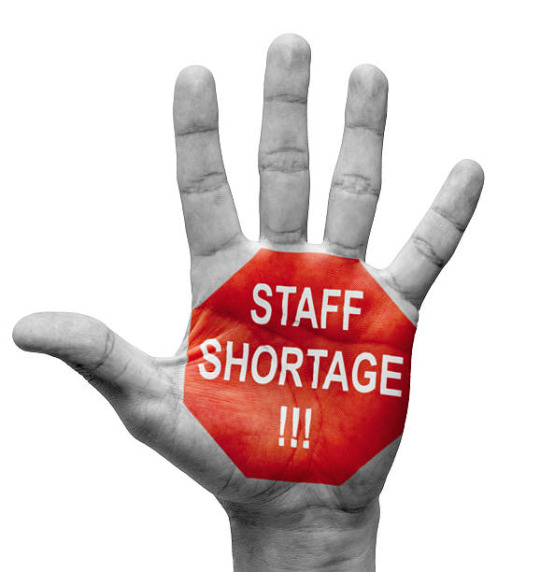
Welcome back to your favourite spot on the block, the ‘Psyche Hotspot’!
There is a nationwide shortage of psychologists, with vacancy rates on the rise, and the profession should be added to the Shortage Occupation List .The demand for forensic psychologists is outstripping the supply as the legal system thinks up more and more ways to put their expertise to use.
The US Bureau of Labor Statistics doesn't provide data specifically for forensic psychologists, in the field of general psychology, demand is expected to increase 14% every year from 2018 to 2028, which is much faster than average.
The system has also lost many forensic psychologists because they are not comfortable working in close contact with criminals, working long hours under pressure, and defending yourself against the opposing team on the witness stand. Sometimes the cost, time an effort that it takes to become a forensic psychologists discourages individuals from joining that area. Hence, the shortage.
Source:
American Psychological Association. (n.d.). Postgrad growth area: Forensic psychology. American Psychological Association. Retrieved April 7, 2022, from https://www.apa.org/gradpsych/2009/11/postgrad
0 notes
Text
Blog #6 False Memory
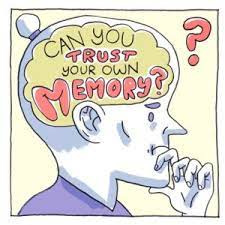
Welcome back to your favourite spot on the block, the ‘Psyche Hotspot’!
Have you ever really believed that you submitted an assignment when in reality you didn’t? Or have you believed you started the washing machine before you left for work, only to come home and find you didn’t? Well, if yes, you are not alone and these are called false memories.
False memory refers to cases in which people remember events differently from the way they happened or, in the most dramatic case, remember events that never happened at all. False memories can be very vivid and held with high confidence, and it can be difficult to convince someone that the memory in question is wrong. The truth is memories are subject to change, malleable, and often unreliable. Events are moved from your brain’s temporary memory to permanent storage while you sleep. The transition, however, isn’t absolute. Elements of the memory may be lost. This is where false memories can begin. False memories are created in several ways such as suggestion, misinformation, hypnosis, imagination, dream interpretation, misattributions, emotions, etc.
No techniques used by a forensic psychologist can determine the validity of these memories, and science doesn’t yet have a way to prove that a recovered memory is true or false when independent evidence is lacking. Most false memories aren’t malicious or even intentionally hurtful. They’re shifts or reconstructions of memory that don’t align with the true events. However, some false memories can have significant consequences, including in court or legal settings where false memories may convict someone wrongfully. The good news is most false memories are harmless and may even produce some laughs when your story conflicts with someone else’s memory of it.
youtube
Would you make a good witness?
Until next time, stay safe, sane, sanitized, and sensitized.
Sources:
Holland, K. (2019, April 23). False memory: How memories form and why so many may be false. Healthline. Retrieved March 16, 2022, from https://www.healthline.com/health/false-memory#bottom-line
III, H. L. R., & Marsh, E. J. (2011). False memory. Scholarpedia. Retrieved March 16, 2022, from http://www.scholarpedia.org/article/False_memory#:~:text=False%20memory%20refers%20to%20cases,memory%20in%20question%20is%20wrong.
VOCtv - VoicesOnCall. (2018, September 23). How Aware Are You? - Situational Awareness - #1 [Video]. Youtube. https://www.youtube.com/watch?v=MYEAQG62pYA
1 note
·
View note
Text
Blog #5 Confidentiality while maintaining proper documentation
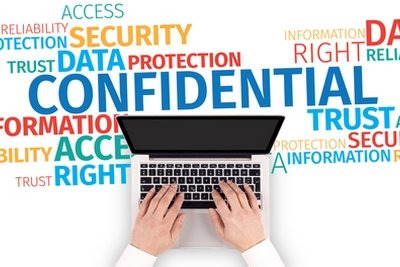
Welcome back to your favourite information hub, the ‘Psyche Hotspot’!
It is the prime obligation of a forensic psychologist to take reasonable precautions to protect their client’s confidentiality and must make its limits clear. The disclosure must be made only with the client’s consent or consent of the legally authorized individual; it can also be made without the client’s consent only if mandated by law or when the psychologist uses the information for consultation or protection of the client. In keeping their client’s information confidential, the forensic psychologist also has a responsibility to maintain proper documentation for his/ her own records. This can sometime be a struggle to protect these records from prying eyes. If in maintaining proper records the client’s information is accessed by unauthorized individuals, this breaks the confidentiality agreement and may even put the client in danger.
To address the issue of maintaining proper documentation and confidentiality simultaneously, here are a few tips:
1.Store files in both softcopy(cloud storage) and hardcopy(paper/cabinet storage) format.
2.Keep your clients’ files in a safe cabinet. Use the shredding machine. Never leave documents where people can get them.
3.Label folders containing confidential information, both physical and online folders. It will serve as a reminder that you have to take good care of the files inside. You can even make certain folders password encrypted, so that if someone does hack your computer, they then have to hack the confidential folders.
4. Control access to clients’ files allowing only authorized persons to access them.
5. ‘Loose lips might sink ships’ so don’t be tempted to talk about clients even with your closest friend, spouse or family members.
You never know when these files or information may be useful or even subpoenaed in court. Remember, always keep a permanent record to protect your back as a forensic psychologist because as Jamaicans say, “You neva know when people head will tek dem and trouble no set like rain”
Until next time folks, stay safe, sane, sanitized, and sensitized.
Sources:
7 steps to preserve client confidentiality. AgileLaw. (2017, July 24). Retrieved March 16, 2022, from https://www.agilelaw.com/blog/preserve-client-confidentiality/
Yadav, P. K. (2017). Ethical issues across different fields of forensic science. Egyptian journal of forensic sciences. Retrieved March 16, 2022, from https://www.ncbi.nlm.nih.gov/pmc/articles/PMC5514178/
youtube
ISBA lawyer. (2016, May 5).Confidentiality Issues Regarding Mental Health Records [Video]. Youtube. https://www.youtube.com/watch?v=2kmPLDfPuKU
1 note
·
View note
Text
Blog #4 Looking for common/ traditional motive(s)
Welcome back to the ’Psyche Hotspot’.
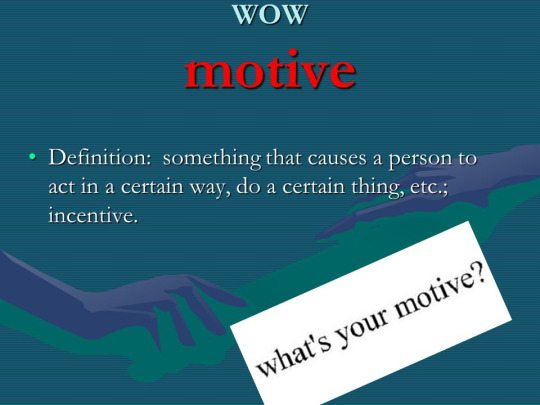
Before we begin, let me just tickle your brain with these 2 questions:
1.Do you think that an individual has to have motive to commit a crime?
2.Do all criminals have the same motives?
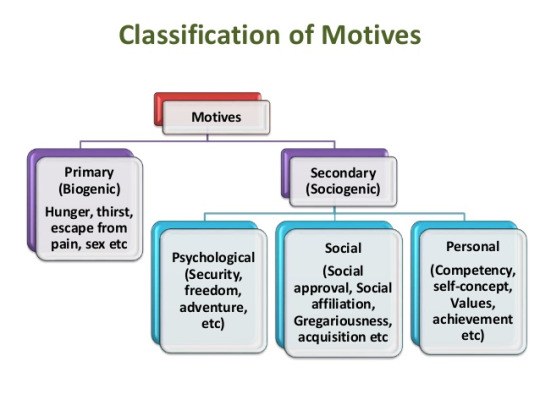
The direct exploration of the psychology of criminals, who are often dealt with as clients in some sort of therapeutic context, shows how important it is to go beyond fictional accounts of criminals and the notions of ‘motives’. Although a person’s actions while committing an offense may appear as being driven by a specific motive, close observation and consideration often reveals other processes; a person committing a burglary or robbery may have the appearance of being driven by the desire for financial gain but it may be because of a mental illness. For example, why might a burglar defecate on a bed in the house he burgles? What is a fraudster seeking to achieve who draws no personal benefit from money he has illegally obtained? Why does one robber keep clear of firearms while another carries a gun?
These questions can take us far beyond the limited ‘motives’ such as revenge or greed that populate crime fiction. It is my belief that forensic psychologists frequently try to identify motives in which not all criminal offending has motives. Even if there is motive, it is not always the most common or traditional motives that we are familiar with. Things and times are changing and so are the motives for offending. The more subtle task is to determine how offenders see themselves and their roles in relation to their criminal actions.
Until next time folks, stay safe, sane, sanitized and sensitized.
1 note
·
View note
Text
Blog #3 Competence
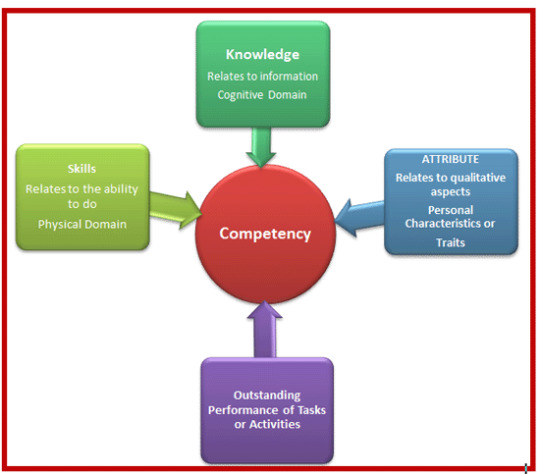
It is stated that psychologists must work as per and to the best of their competence boundaries, based on their education, training, supervised experience, consultation, study or professional experience (American Psychological Association 2010). They either are or become reasonably familiar with the judicial or administrative rules governing the roles they play. To determine the competence, we must take into consideration the relative complexity and nature of the service to be provided, relevant training and experience, preparation and study they were able to devote to the matter, and the opportunity for consultation in a particular subject matter area.
It is the ethical duty of forensic psychologists to inform the referral source as to whether there is a known basis in either research or practice to answer the particular question being asked. They must avoid misrepresentation of research in any way. Awareness of legal and professional standards, law, rules and procedures involved must not lead to threatening or impairment of the rights of the affected individual as well as being sensitive to and knowledgeable about individuals. Hence, to clarify the issue of competence, individuals in the field of forensic psychology must:
∙ Give full and accurate accounts of both their skills and their knowledge when presenting themselves to clients.
∙ Base their opinions and testimony as much as possible on scientific foundations.
∙ Clarify the limits of their conclusions and recommendations as well as the factual basis for them.
∙ Keep abreast of developments in the law as well as in psychology. ∙ Ensure that their own values do not compromise the services they are rendering.
Until next time folks, stay safe, sane, sanitized and sensitized.
Sources:
https://www.managementstudyguide.com/what-are-competencies.htm
Yadav, P. K. (2017). Ethical issues across different fields of forensic science. Egyptian journal of forensic sciences. Retrieved March 16, 2022, from https://www.ncbi.nlm.nih.gov/pmc/articles/PMC5514178/
1 note
·
View note
Text
Blog #2 TV vs REALITY
Welcome! Welcome! Welcome back to the one and only ‘Psyche- Hotspot’!
youtube
Popular TV shows and movies have given the public a skewed understanding of what a forensic psychologist might do every day at work. The way investigations are portrayed in the series highly influences the expectations in the real world.
While some forensic psychologists work for law enforcement agencies like the FBI, they are not typically special agents. This means they aren’t the ones knocking down doors, tackling suspects, and handling firearms.
Instead, forensic psychologists concentrate on applying the principles of psychology to the field of criminal investigation and law. They usually work within the court system, though some forensic psychologists work in the business sector or in private practice as consultants.
Some of the responsibilities of forensic psychologists include:
Working within family courts to help resolve child custody issues, investigate abuse, provide psychotherapy, and assess visitation risks
Assessing the mental competency of defendants and their fitness to stand trial within criminal courts
Providing opinions about a defendant’s mental health, serving as an expert witness, and sometimes offering psychotherapy services to the victims of crime
Working as a consultant for the defense or for the prosecution in a criminal case
Conduct research and review previous research on topics related to forensic psychology
Study criminology to gain a better understanding of why people break the law
Of course, the specific job duties that you might have as a forensic psychologist depends heavily on your specific employment situation. For example, if you’re a consultant, your duties might be much more varied than if you work for the Child Protection and Family Services Agency. This also means that forensic psychologists don’t carry out many of the activities shown in the movies because no one person has all the skills or training to do all the work that is necessary for all forensic disciplines; especially in less than an hour.
Until next time folks, stay safe, sane, sanitized and sensitized.
Source:
BBC Ideas. (2019, July 30). Have you been fooled by forensics on TV? | BBC Ideas [Video]. Youtube. https://www.youtube.com/watch?v=-xakFRCWpP4
1 note
·
View note
Video
youtube
Blog #1
Welcome! Welcome! Welcome Guys to the one and only ‘Psyche Hotspot’!
My name is Amoy Montaque and I am a student of the Northern Caribbean University. I am pursuing a Bachelors of Science degree in Criminal Justice with an emphasis on Forensic Science. I am currently enrolled in the course “Forensic Psychology ” and in partial fulfillment of this course, I am required to post blogs which speak to issues within the field forensic psychology. Each blog will highlight an issue and provide evidence and supporting details for the issue. These issues include competence, false memory, corruption, etc. I will say no more because I wouldn’t want to ruin it for my other blogs.
For those who are unaware of what forensic psychology is, not to worry; I’ve got you covered. All you have to do is spend a few minutes watching the above video and you will be gifted with the necessary knowledge.
Bartol & Bartol (2004:8) define forensic psychology as: "The research endeavor that examines aspects of human behavior directly related to the legal process and the professional practice of psychology within, or in consultation with, a legal system that embraces both civil and criminal law.”
Soooooo, if you are a stickler for forensic psychology or want to learn more, please follow and like the ‘Psyche-Hotspot’. It promises to be informative, realistic and intriguing. Let us not forget that we learn from each other, hence, I crave your interaction and feedback on my content, so start by commenting down below on any issue(s) that you have observed unfolding in the field of Forensic Psychology.
Until next time folks, stay safe, sane, sanitized and sensitized.
Sources:
The British Psychological Society. (2019, June 26). What is Forensic Psychology? [Video]. Youtube. https://www.youtube.com/watch?v=HMPIvOUvqPA
Forensic psychology-introduction to psychology-lecture handout. Docsity. (n.d.). Retrieved March 16, 2022, from https://www.docsity.com/en/forensic-psychology-introduction-to-psycology-lecture-handout/172642/
1 note
·
View note